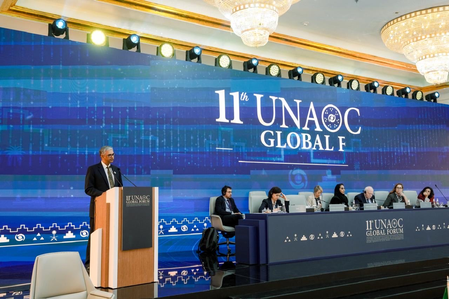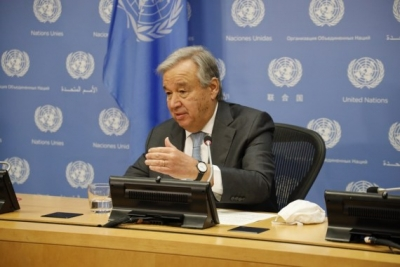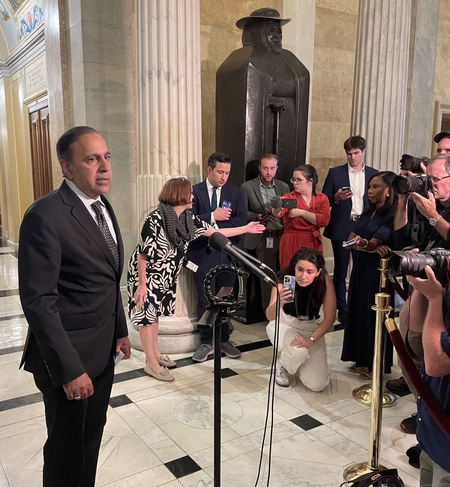
United Nations, May 3 (IANS) Pakistan’s Permanent Representative to the United Nations, Asim Iftikhar Ahmad, has called for intensifying international intervention in the tense situation between his country and India, saying that there was “imminent threat of kinetic action” by New Delhi.
He lamented that their “impact” on India to de-escalate was not there in an acknowledgement of Islamabad’s failure to rally support for its cause.
Speaking at a news conference here on Friday, he reiterated his country’s claim that withholding Indus waters “will be considered as an ‘Act of War'” and said that Islamabad will retaliate and “exercise its inherent and legitimate right to self-defence”.
He said with the continuing escalation of the situation, Pakistan will consider calling for a meeting of the UN Security Council.
Efforts by “common friends of both India and Pakistan” should continue to de-escalate the situation, he added.
“But there is a sense that, you know, the impact that is desirable, especially on the Indian side, to de-escalate is not yet there,” he said.
“So that’s why we’re saying that there is a need to intensify,” he added.
Tension has been building up in the region following last month’s terrorist attack in Pahalgam for which The Resistance Front, a front outfit of the Pakistan-based Lashkar-e-Toiba, owned responsibility.
A conflict has “the potential for far-reaching and disastrous consequences,” and “that’s why I’m emphasising the need for these preventive actions, preventive diplomacy and dialogue to calm down,” Ahmad said.
He added that he has met twice with UN Secretary-General Antonio Guterres and Islamabad has invited him to visit the region, “that would mean both India and Pakistan”.
Guterres’ Spokesperson Stephane Dujarric said that “good officers only work if all the parties involved accepted it”.
India is opposed to any third-party involvement in the disputes with Pakistan citing the 1972 Simla Agreement between the leaders of the two countries that declared their issues to be bilateral matters to be dealt with between themselves.
While Guterres has spoken with Pakistan’s Prime Minister Shehbaz Sharif, his contact with India has only been at the level of External Affairs Minister S. Jaishankar.
Ahmad said that he had also had a range of meetings, including with UN Security Council President Evangelos Sekeris, UN General Assembly President Philomen Yang, and representatives of the Security Council members and the Organisation of Islamic Cooperation.
He added that “there is reasonable intelligence indicating towards imminent threat of kinetic action by India against Pakistan,” but would not explain what the reports were based on.
“Pakistan does not seek escalation. This has been made clear by the political leadership and at all levels. At the same time, we are fully prepared to defend our sovereignty and territorial integrity,” he said.
Ahmad asserted that “Pakistan categorically rejects any attempt to associate it with the April 22 terrorist incident in Pahalgam,” adding, “We are concerned over the loss of lives in the Pahalgam attack.”
But when pressed by a reporter about Islamabad’s links to terrorism and Pakistani Defence Minister Khawaja Asif’s recent admission that his country trained and provided assistance to terrorists, he did not give a direct reply and instead flung allegations about India.
He was asked about the Mumbai 26/11 attackers who came from Pakistan and the presence of internationally declared terrorists like Hafiz Saeed, the mastermind of that attack, and even Osama bin Laden.
“You know this is the kind of discussion I would like to avoid,” he said.
–IANS
al/khz




